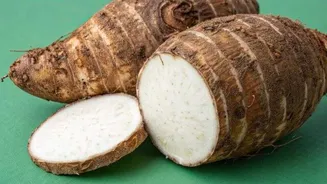Magnesium: Hair's Best Friend
Magnesium is a critical mineral often overlooked, but essential for overall health, and in the context of hair health, it plays a significant role. It's
involved in numerous biochemical reactions throughout the body, including those essential for hair follicle function. Magnesium helps dilate blood vessels, improving blood flow to the scalp. Enhanced blood flow brings essential nutrients to the hair follicles, supporting healthy hair growth and preventing hair loss. Magnesium's role extends to protein synthesis, a crucial process for building hair structure. Moreover, it aids in reducing inflammation, a common contributor to hair loss. This multifaceted nature highlights magnesium's importance in maintaining a healthy head of hair. Adequate magnesium levels are essential for preventing hair loss and promoting robust hair growth.
Deficiency: The Hair Fall Link
A deficiency in magnesium can manifest in various ways, and one of the more noticeable signs is hair loss. When the body lacks sufficient magnesium, numerous physiological processes are disrupted, including those supporting hair growth. Reduced blood flow to the scalp, a consequence of magnesium deficiency, starves hair follicles of vital nutrients. This lack of nourishment weakens hair strands, making them more prone to breakage and shedding. Magnesium deficiency can also escalate inflammation, damaging hair follicles and further impeding growth. Another consequence is the disruption of protein synthesis, which is crucial for forming the hair's structural foundation. Several factors contribute to magnesium deficiency, including poor diet, certain medical conditions, and the use of specific medications. Recognizing the signs of magnesium deficiency and addressing it promptly is crucial for addressing and reversing hair loss.
Dietary Adjustments Matter
Boosting your magnesium intake through dietary changes can significantly impact your hair health. Numerous foods are naturally rich in magnesium, offering a delicious and effective way to combat deficiency. Incorporate leafy green vegetables, such as spinach and kale, into your daily meals. They are not only magnesium-rich but also packed with other beneficial nutrients. Nuts and seeds, like almonds, pumpkin seeds, and sunflower seeds, also provide a great source of magnesium and add texture and flavor to meals. Legumes, including beans and lentils, are another good addition. Consider incorporating whole grains, such as brown rice and quinoa, which provide a steady stream of magnesium alongside other important vitamins and minerals. Eating a well-balanced diet that emphasizes these magnesium-rich foods supports overall health, and can have a positive effect on hair growth and vitality. Always consult with a healthcare professional or a registered dietician.
Supplementation: What You Need
In some cases, diet alone may not be sufficient to meet the body's magnesium needs. Supplementation can then be a practical solution for addressing a deficiency and boosting hair health. There are various forms of magnesium supplements available, each with different absorption rates and benefits. Magnesium citrate is a popular option due to its high bioavailability. Magnesium oxide is another common form, but it may have lower absorption rates. Magnesium glycinate is known for its gentle effect on the digestive system. It's always best to consult a healthcare provider before starting any supplement. They can determine the appropriate dosage and ensure it won't interfere with any medications or exacerbate existing health conditions. Additionally, they can help to monitor your progress and adjust your supplementation plan as needed. Supplementing magnesium, alongside a balanced diet, supports optimal hair health.
Beyond Magnesium: Holistic Care
While magnesium is a key player, optimal hair health requires a holistic approach, and that goes beyond nutrition. Managing stress, for example, is very important, since chronic stress can lead to hair loss. Incorporate stress-reduction techniques into your daily routine, like yoga, meditation, or deep breathing exercises. Proper hydration is important for overall health, and hair health is no exception. Drink sufficient amounts of water daily to keep your hair follicles healthy. The quality of your haircare products also matters. Select shampoos and conditioners that are formulated with gentle ingredients and free of harsh chemicals. Avoid excessive heat styling, which can damage hair. Regular exercise enhances blood circulation, delivering nutrients and oxygen to your scalp. A well-rounded approach encompassing a healthy diet, stress management, and proper haircare contributes to overall hair health.













